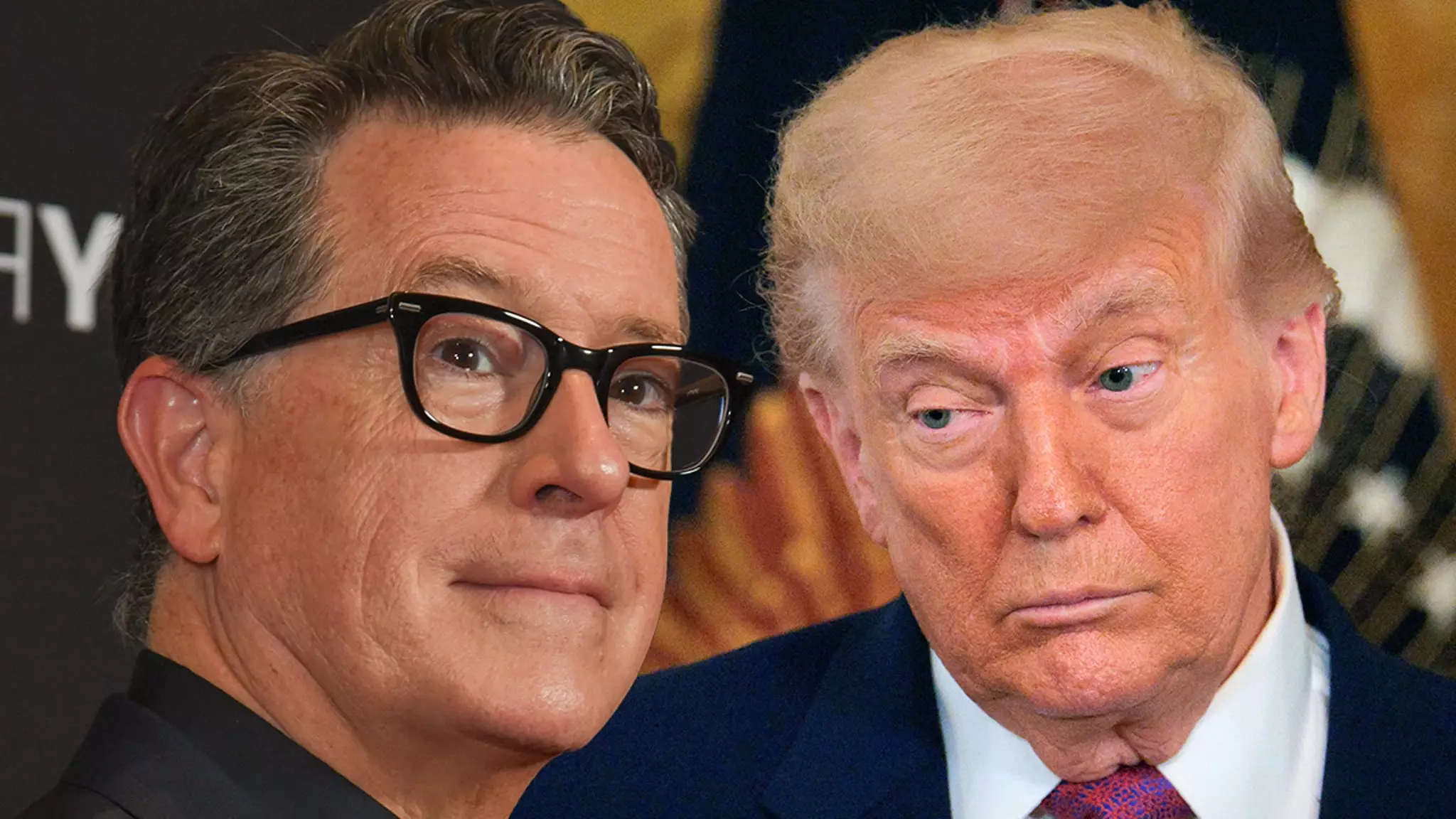In an era where institutions are increasingly cautious and public figures tend to self-censor, Stephen Colbert’s recent outburst exemplifies a powerful rebellion against complicit silence. His unfiltered, visceral words directed at Donald Trump reflect a broader desire to confront powerful figures directly, without the usual diplomatic veneer. It’s a reminder that genuine courage often emerges at the intersection of truth and audacity, challenging the institutional silence that often perpetuates systemic complicity. Colbert’s raw language not only shocks but also signifies a societal hunger for honesty in a landscape clouded by political animosity and media spin.
This moment underscores a fundamental truth: to effect genuine change, one must sometimes forsake politeness and confront uncomfortable realities head-on. Colbert’s fierce criticism exemplifies that fearless honesty can serve as a catalyst for political discourse, galvanizing audiences tired of sanitized narratives. However, such candor also invites risks—alienation, censorship, or professional repercussions—highlighting the importance of personal conviction over the desire for social approval.
Entertainment as Resistance: The Role of Comedians in Political Battles
Historically, comedians have played a crucial role in critiquing power, functioning as societal mirrors and, at times, provocateurs of change. Stephen Colbert’s stance, especially in the wake of his show’s impending end, exemplifies this tradition. His platform has evolved into a space where satire meets activism, illuminating injustices while entertaining audiences. The support he receives from industry peers and viewers alike demonstrates a collective acknowledgment that comedy is not just escapism, but a vital tool for resistance.
The presence of other influential comedians such as Jon Stewart and Seth Meyers in the conversation underscores a shared cultural commitment to speaking truth to power. Their solidarity highlights an understanding that entertainment transcends mere distraction—it’s a form of activism that can influence public opinion and challenge the status quo. Importantly, Colbert’s outspoken criticism of CBS and Paramount’s actions showcases how industry insiders can leverage their influence to question corporate strategies that appear to prioritize profit over integrity.
The Corrosive Impact of Corporate Censorship and Political Fear
The controversy surrounding CBS’s announced cancellation of “The Late Show” reveals deeper tensions between media corporations, political dominance, and the public’s right to truthful journalism. Colbert’s pointed critique of CBS’s settlement with Trump and its alleged motivations illustrates how corporate interests often shape media narratives, sometimes at the expense of journalistic integrity. This case exemplifies how fear—whether of political retaliation or financial repercussions—can threaten the independence of media outlets and their hosts.
By characterizing CBS’s claim of financial concerns as a “big, fat bribe,” Colbert exposes the superficiality underlying corporate justifications for censorship. His assertion that the real issue lies in a climate of fear and pre-compliance highlights how institutions become entangled in protectiveness, often at the cost of transparency and accountability. This loss of integrity undermines democratic society, where a free press and outspoken voices are vital for holding those in power accountable.
Resisting Silence: The Assault on Free Expression in Modern Media
The reactions—ranging from admiration to accusations of arrogance—demonstrate how polarized perceptions of critique reflect broader societal divisions. While figures like Ben Stiller and Rachel Zegler mourn the potential loss of an influential voice, critics like Dave Portnoy argue that economic motives and personal arrogance drive such controversies. This division illuminates an ongoing struggle between safeguarding free expression and defending institutional interests.
Colbert’s boldness, regardless of the fallout, underscores the importance of resistance through honesty. In a landscape where economic interests often overshadow ethical considerations, daring to speak the unvarnished truth becomes an act of defiance—a stand against the creeping influence of censorship and capitulation. It reveals that genuine change requires not only brave words but also a willingness to confront the uncomfortable realities that threaten the fabric of free discourse.
In our increasingly sanitized media environment, the significance of outspoken criticism cannot be overstated. Colbert’s fiery words serve as a rallying cry for those who believe in the power of honest dialogue. Their message echoes beyond entertainment, emphasizing that integrity and courage are essential to preserving the democratic ideals of transparency and accountability. This moment is a potent reminder that silence isn’t neutrality—it’s complicity.

